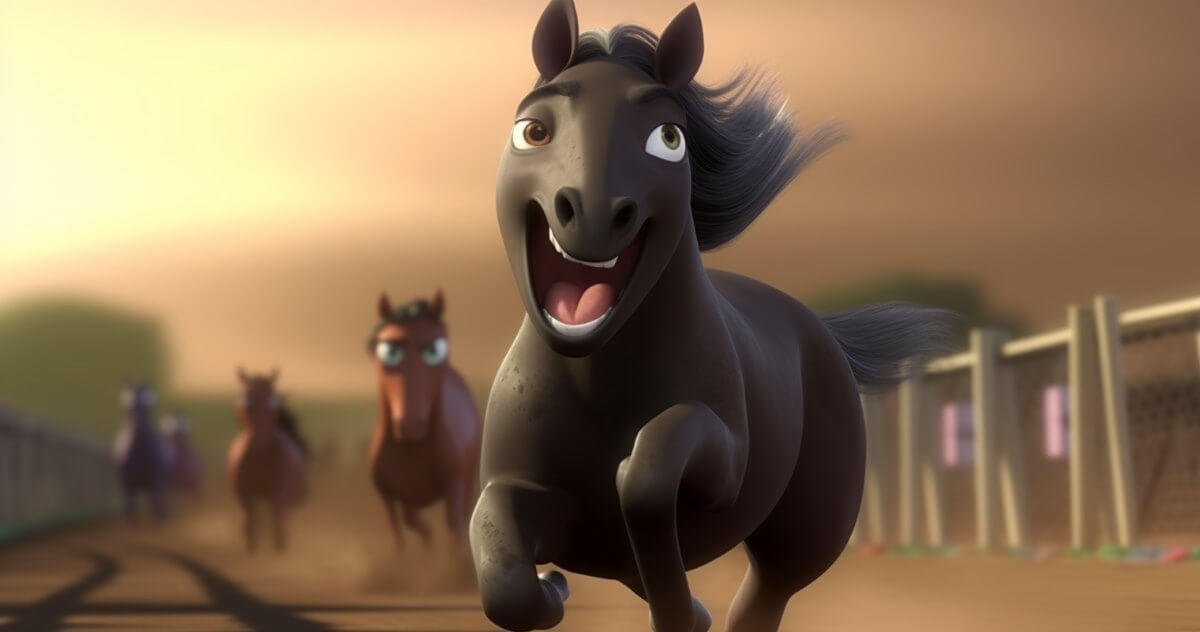dark horse
Meaning of the phrase:
- a little known candidate or competitor who unexpectedly wins or succeeds
· They laughed when he signed up for the local knitting competition, but he had a secret talent that made him the dark horse of the competition: he could knit an entire sweater in under an hour using just his feet.
Origin of the phrase:
Feeling lucky? Perhaps you’re at the racetrack scanning the odds board and trying to decide which horse to bet on. You’re confident in your picks until you come across a horse with a name you don’t recognize – the “dark horse.” Intriguing, but what does it mean? Let’s take a closer look.
The “dark horse” idiom has its roots in the world of horse racing. In the early days of the sport, horse owners would keep their prized thoroughbreds hidden away until their debut on the track. They would have them trained “in the dark,” keeping their horses’ potential hidden from the public eye. This way, bettors wouldn’t have enough information to place accurate odds on the horses, making it a risky bet. But if the horse won, the owner could cash in big time. Talk about a sneaky strategy!
The term “dark horse” was first used in print by Benjamin Disraeli, a renowned author and later UK Prime Minister, in his novel Young Duke, published in 1831. In the book, Disraeli describes a race where an unknown horse, or a “dark horse,” unexpectedly wins:
The first favorite was never heard of, the second favorite was never seen after the distance post, all the ten-to-oners were in the race, and a dark horse which had never been thought of rushed past the grandstand in sweeping triumph.
This was the earliest reference to the term in print, and it is safe to assume that the term was already in use among horse racing enthusiasts at that time. Thus, the phrase “dark horse” likely originated in the early 1800s.
Since then, the term has migrated from the tracks to the figurative world. In politics, “dark horse” often describes candidates who are relatively unknown or unpopular, but could still win an election or nomination. These contenders might be outsiders to the political establishment or underdogs, but they can win over supporters with their ideas, charisma, or grassroots movements. Think of Barack Obama, who was relatively unknown before his successful presidential campaign in 2008.
Sports are another area in which the term ‘dark horse’ is commonly used. A dark horse team or athlete is not expected to win, but could exceed expectations with their performance. It’s like the old saying goes: it’s not the size of the horse in the race, it’s the size of the heart in the horse. A dark horse might not have all the advantages of their competitors, but they have the determination, skill, and perhaps a bit of luck to come out on top.
The “dark horse” is a reminder that we shouldn’t judge a book by its cover. These underdogs may not look like much at first glance, but they have the potential to surprise us all. So, if you’re feeling down on your luck or underestimated, take a cue from the dark horse and keep persevering. Who knows? You might just come out on top and shine bright like a winner.
